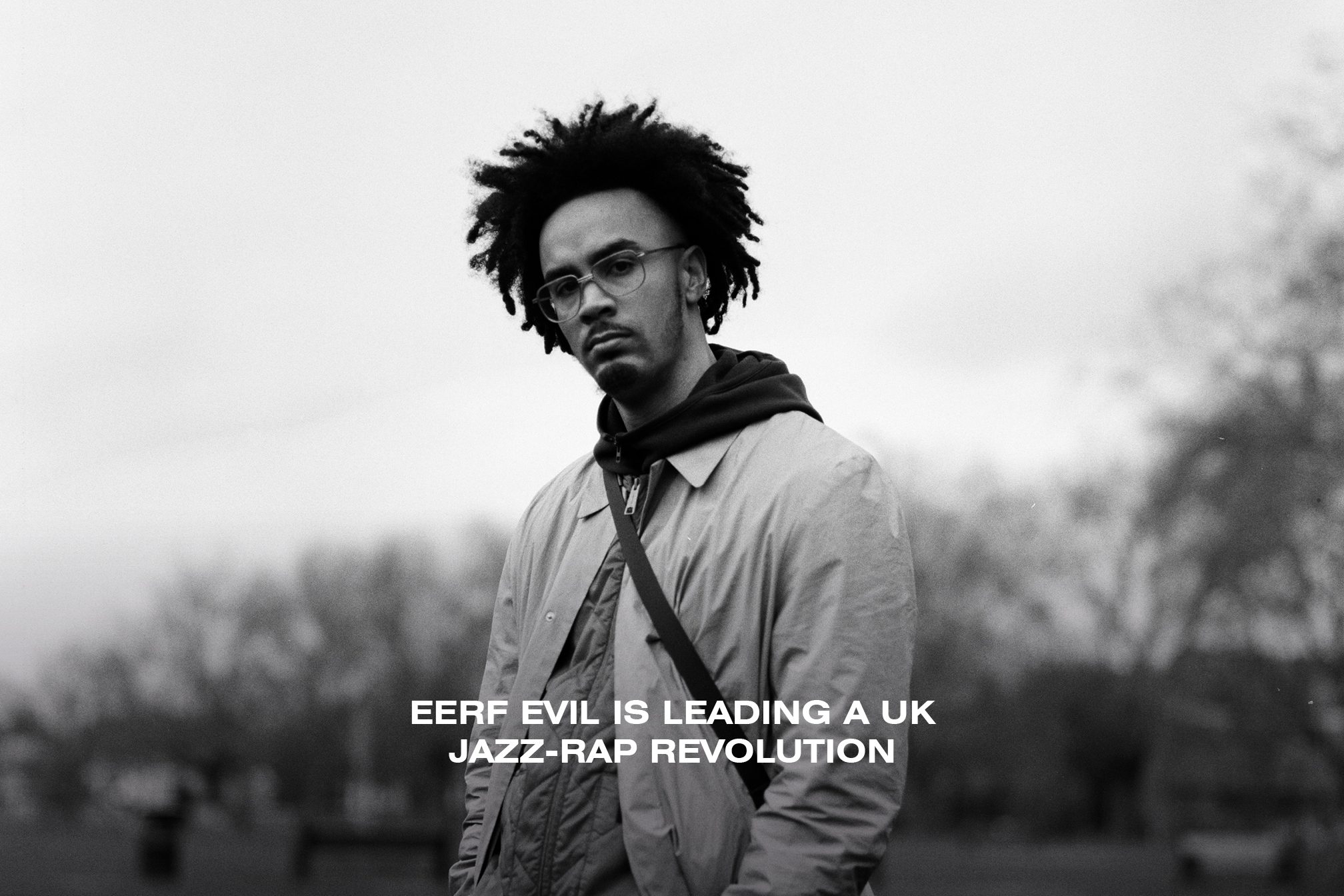 Features
Features
Eerf Evil is leading a UK jazz-rap revolution
Ciaran Thapar meets Eerf Evil, the rapper and youth worker reclaiming jazz’s working class Black origins and breaking down industry barriers with the community building Silhouettes Project
Across February 2020, in a very different world, I attended my final two live music events before lockdown hit. Both took place at Total Refreshment Centre in Stoke Newington, East London, a former chocolate factory-turned-jazz hub, which the writer Emma Warren profiled in her 2019 book Make Some Space to make a case for protecting cultural institutions in gentrifying areas and the social value of “dancing in the dark” together. Both visits stayed with me ever since, their sounds ringing warmly in my ears like a bassline reverberating off the pillow after a night out.
The first was a showcase of The Silhouettes Project, which, according to Spotify, is “a platform for the new generation of underground hip-hop, jazz, and soul music in the UK.” Founded in 2019, the collective brings together instrumentalists, producers, rappers and singers from across the UK under one familial banner. Since its closure as a public venue by Hackney Council in 2018, Silhouettes have landed Total Refreshment Centre as a base for private performance and creation. On arrival, a Moses Boyd vinyl was hanging alone on the wall, a humble shrine to percussive city rhythm. In the main room, upon a small, low stage in front of a packed audience, a slew of artists took turns alongside a live band. The evening’s mood moved between chill and raw, dulcet vocals and grimey wheel-ups, Bel Cobain and Louis the Hippie.
Read this next: A deeper African source: How grime and afrobeat is influencing UK jazz
One rapper who introduced each act before jumping up to freestyle at the end was Eerf Evil. Mixed-race, Scottish-Ghanaian, with an unmistakable expanse of hair and confident control of the mic, the 26-year-old is one of the leading Silhouettes voices. It was Eerf—real name Jaden Osei-Bonsu, a youth worker and charity funding professional by day—for whom I would return two weeks later to see the launch of his upbeat, moshpitty, flute-tinged single ‘See Us Live’.
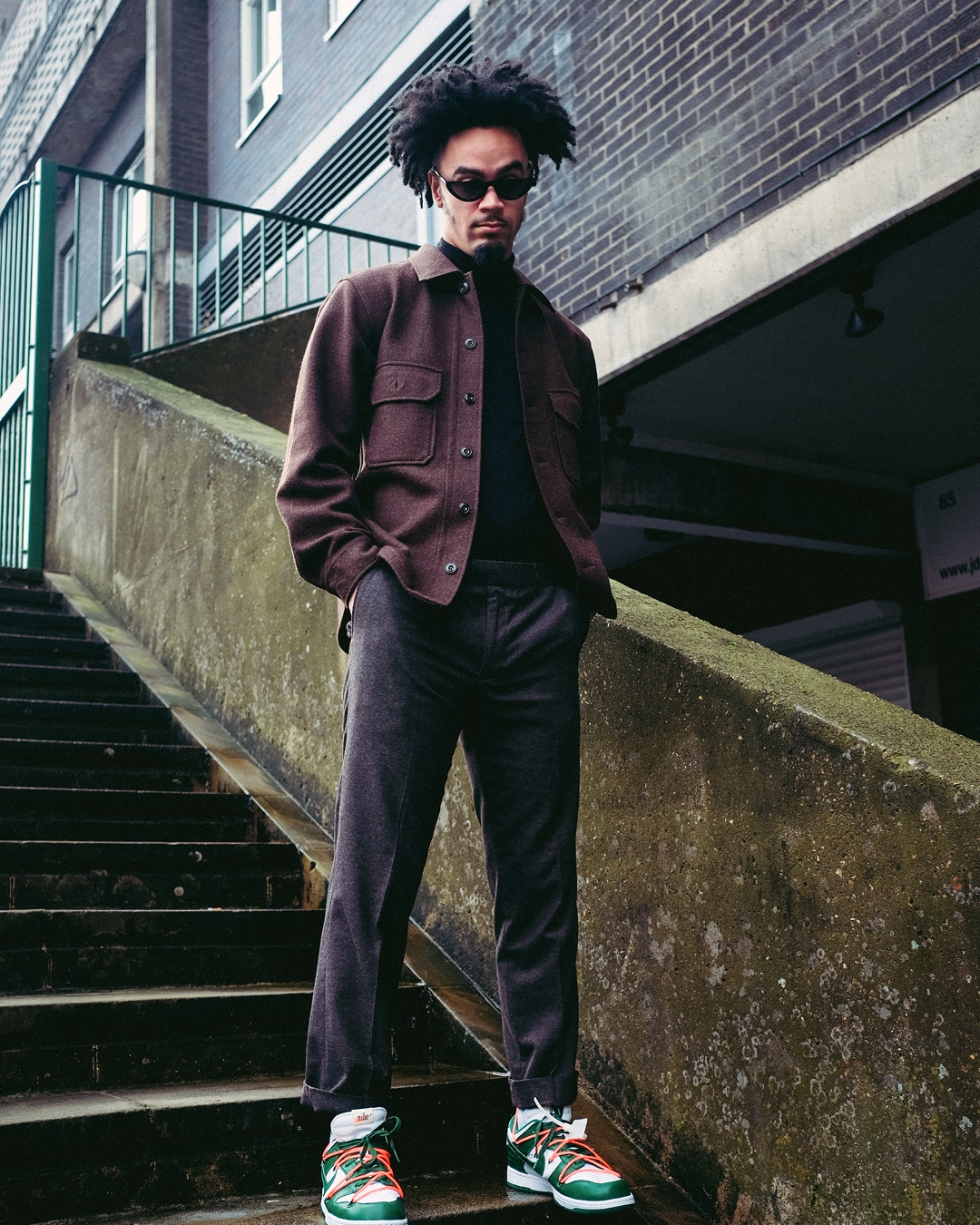
“Name me another community project that has reached four million streams!” Eerf chuckles proudly when we catch up in February 2021, a whole year and half a pandemic later, referring to the subsequent success of Silhouettes releases on digital streaming platforms. “That’s rarely been done on an industry level, let alone by a community project. There is no other collaboration tape that has reached those numbers early on, especially coming out of the UK. I can say that with chest. There is an emergence of this sound because we’ve based it on quality.”
US jazz-rap first hummed out of 1990s New York, perfected by outfits like A Tribe Called Quest, Gang Starr and The Roots. Ever since, it has steadily thrived on this side of the pond, too, but in the shadows. Yet over the last decade, through poetic experimenters like Alfa Mist, Knucks, Jesse James Solomon, and Children of Zeus, to name a few, and dedicated incubator-dances like Touching Bass and Steam Down, a contemporary, hybrid space has gathered form and pace between other UK music trends.
Read this next: London's Steam Down is at the forefront of the UK's new jazz age
On the one hand, commercialising rap and drill music in London, Birmingham and other major cities has shot to the forefront of hip hop culture. On the other, British jazz music—leading artists like Nubya Garcia, Shabaka Hutchings and Yussef Dayes, who borrow as much from US funk and soul as they do from Caribbean soundsystem culture and West and South African diaspora influence—has become a globally respected movement, too.
And across 2020, it was while moving in the slipstream between these lanes that The Silhouettes Project appeared to platform a new sonic direction for consumers trapped in lockdown. Timing is everything: the collective has become a medicinal source of comfort for quarantined listeners stuck at home seeking on-demand access to remote portals of purist analog production. Their vibe has become a coping mechanism that makes you feel like you’re standing next to their players, beer can in hand, swaying in unison with fellow members of an audience at Total Refreshment Centre.
“It’s about the re-emergence of a sound,” explains Eerf Evil. “Jazz historically comes from working class Black culture, but over time it became a middle class thing and lost its way—and the same has happened to hip hop and R&B. Through Silhouettes, we are taking back the sound of jazz and its influence—what it can teach us. It’s people from ends playing jazz music! When I was growing up, you’d never hear that. We’ve got a sound that is truly infectious within communities, but a lot of the time, when you go into jazz spaces in London, you don’t see other people from the hood there. We can reclaim it now.”
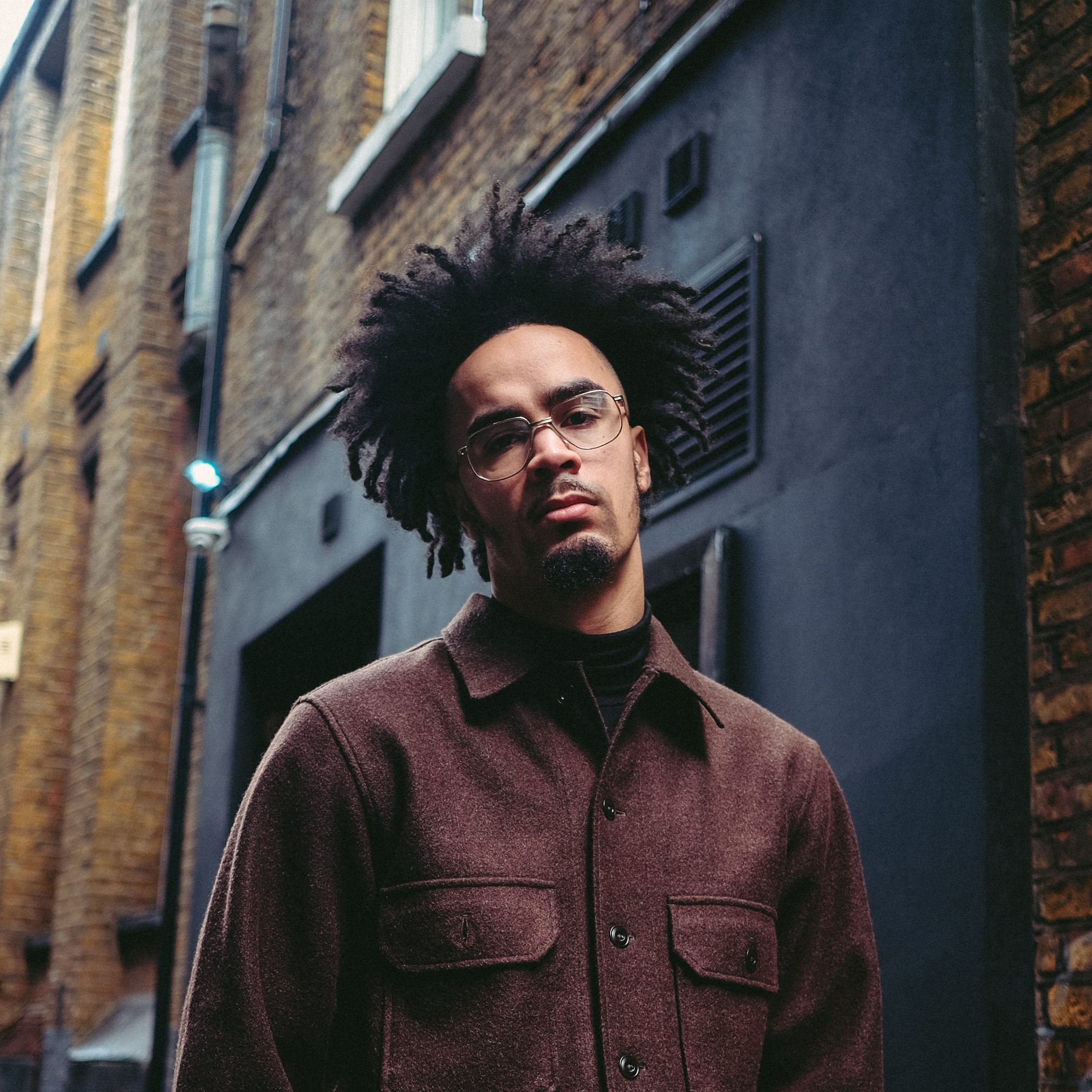
As a key player in independent music platform Root 73 alongside fellow Silhouettes mobiliser Asher Kosher—the pair teamed up last year for head-bopper ‘Chase It’— Eerf has set out to change the face and ecosystem of UK rap music. “We’ve got places like GRM Daily, Link Up TV, or Mixtape Madness for drill and grime, and so many others that replicate that. But for an artist like me, there is no platform that brings us through. That’s where Silhouettes comes in,” he explains.
Under Eerf’s leadership, uplifted by the mentorship of heavy-hitters like Loyle Carner and Kojey Radical, since last summer Silhouettes members have drip-fed soothing stories of love, hope, poetry and urban realism onto the internet. At the time of writing, the ‘Jazz Rap’ playlist on Spotify features six contributions directly from their collection, which features cover art designed by Colombian illustrator SagaUno depicting a cartoonish Total Refreshment Centre on a reimagined monopoly board, glowing with proud, grainy colour, symbolising staying power and resilience in the face of unforgiving regeneration in London. Each Silhouettes single—from ‘July’ by MANIK MC, Elisa Imperilee and MIDNIGHT PHUNK, to ‘For South’ by Enny and Nix Northwest, to ‘Like We Used To’ by Kofi Stone, Joe Beard and Purple Cloud—is a piece of the grand puzzle.
“I grew up on rap,” Eerf explains, referring to his teenage years spent in Norwood, South London, absorbing the cruddy bars of local influencers like Giggs who spoke to an experience of hardened road life that Eerf was drawn to as a teenager. “Then in my university years I started to listen to jazz-influenced music, artists like J Cole, TDE, and UK rappers like Coops, Jehst, Confucius MC; artists who really set the UK hip hop scene. And I was like: I don’t see anyone else around me rapping like this. This is the kind of sound I wanna go for, representing ends in a more vulnerable way, over a jazzy, hip hop style. It’s political, but I’m trying to make things more palatable and happy as well. I’m trying to be the person a younger me would look up to. I’m using music to make ‘conscious’ sexy!”
Read this next: Ty and the history of UK rap
Eerf’s mixtape ‘Ends & Beyond’ with in-house producer Srigala, released in January, is an encapsulation of this ethos. Its tight nine tracks, including the hypnotic anthem ‘Lock & Key’ with MANIK MC and laid-back ‘Dreams’ with Kofi Stone, flow seamlessly, oozing an authenticity that can only come from art that is built from scratch over time. His lyricism is sharpened by clarity, realism and hope: an exploration of the injustices he faced growing up around habitual violence and demonising run-ins with the police, rob-and-sell plots with friends and a failing school system, but delivered in a fun, listenable, solutions-focused way.
“Younger Eerf had a lot of vulnerabilities that I wasn’t able to show. I felt like I was carrying a mask around as soon as I stepped out my door. When you’re exposed to things like youth violence from a young age you have to have a guard up...I didn’t want to be anything I wasn’t, I was just trying to survive,” he reflects. “Now, my horizons have been opened up and I value life a lot more, and I want young people to value life a lot more. One of the verses I’ve written says: imagine going to Argentina and finding a wife. Have you ever thought about that? Because, bro, that could be a reality! Rather than being stuck in ends, leave the hood a bit. No one’s wrong for doing what they’re doing. Because just as the media demonises a young Black boy for shotting weed, there are corporates who are doing white collar crimes and who aren’t paying tax who don’t get demonised. There is badness everywhere! It’s the decisions we get and the choices we make. But we’ve all gotta survive, we’ve all gotta get our own.”
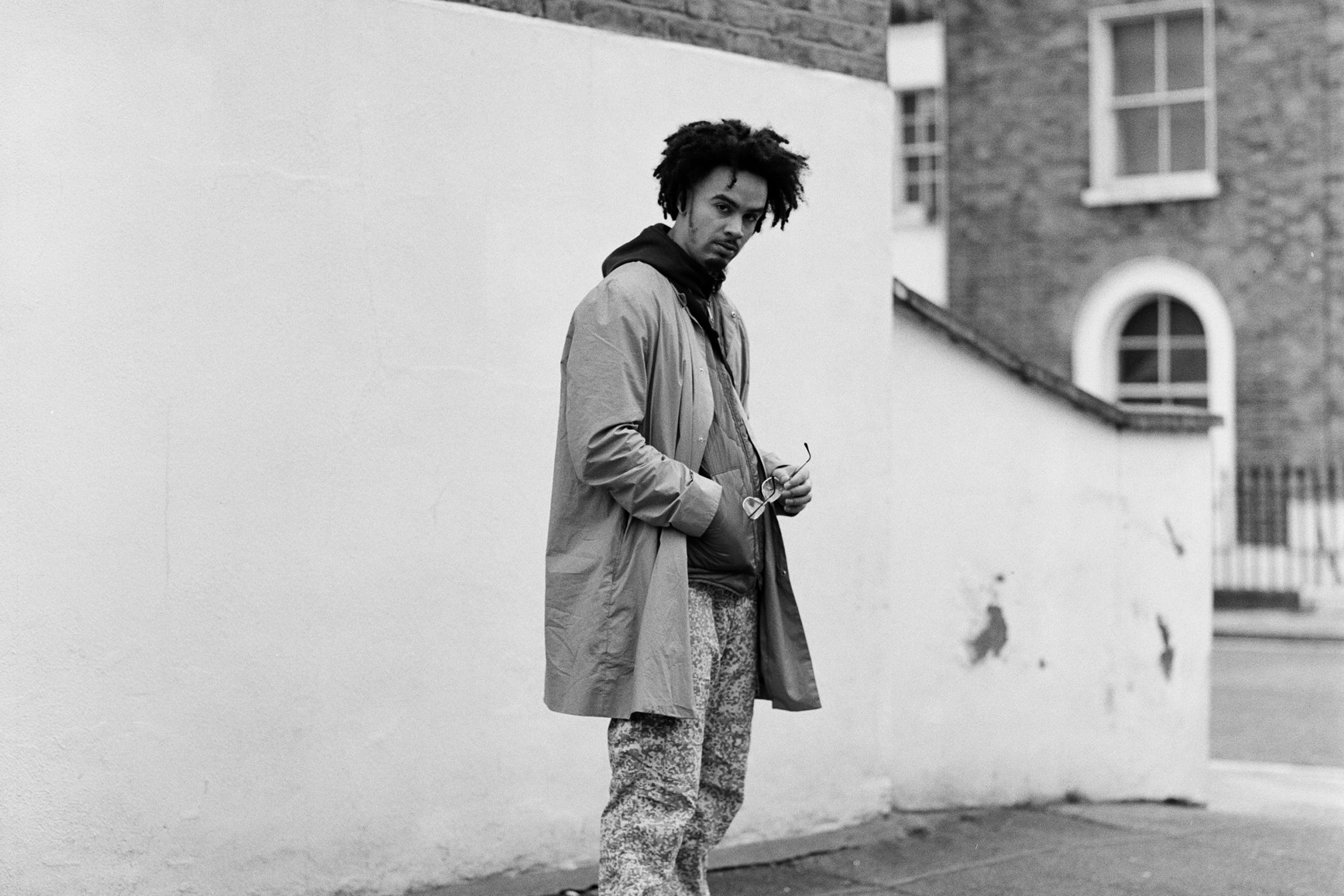
The central single off the project, ‘Lock & Key’, took six months to make and features nine contributors, including keys, a bass guitarist, backing vocalists and a trumpeter. Its piece-by-piece construction is an example of the Silhouettes way; an appreciation of patient creation and letting a collaborative energy settle, as opposed to the downloadable electronic rush that Eerf sees as having saturated the contemporary rap market.
“It’s about building a relationship. With ‘type-beats’ now, it’s like Tinder: you’re swiping, you’re going through beat after beat, producers are sending beat packs, and you’re not paying respect to the music or the musical process. We’re not going on YouTube to make this. We’re bringing people into the room to say: yo, how can you respond to this piece of music, to make it truly creative?”
Read this next: "We own the ball now": How UK producers set a new standard for drill
For ‘Young Brother’, a heartfelt song released in the wake of Black Lives Matter protests during the latter half of 2020, Eerf speaks from the perspective of a learned older brother on the pain of racial profiling and inequality.
“Some people think that Black Lives Matter is an American problem, but the song touches on being Black in the UK, the psychological effects of being stop-and-searched growing up, relationships with the police,” he says. “How do we build better relationships? That one touches on different people’s experiences, but also new communities coming into environments and paying homage. One of my lines is: “I hope that gap year saved you, I hope you came back to the ends and you was grateful.” Because it’s like, yo! Let’s just acknowledge what’s around us. We should celebrate difference, people shouldn’t feel bad coming from a different class or background, it’s great. But let’s acknowledge everyone who is in these spaces, you know what I mean?”
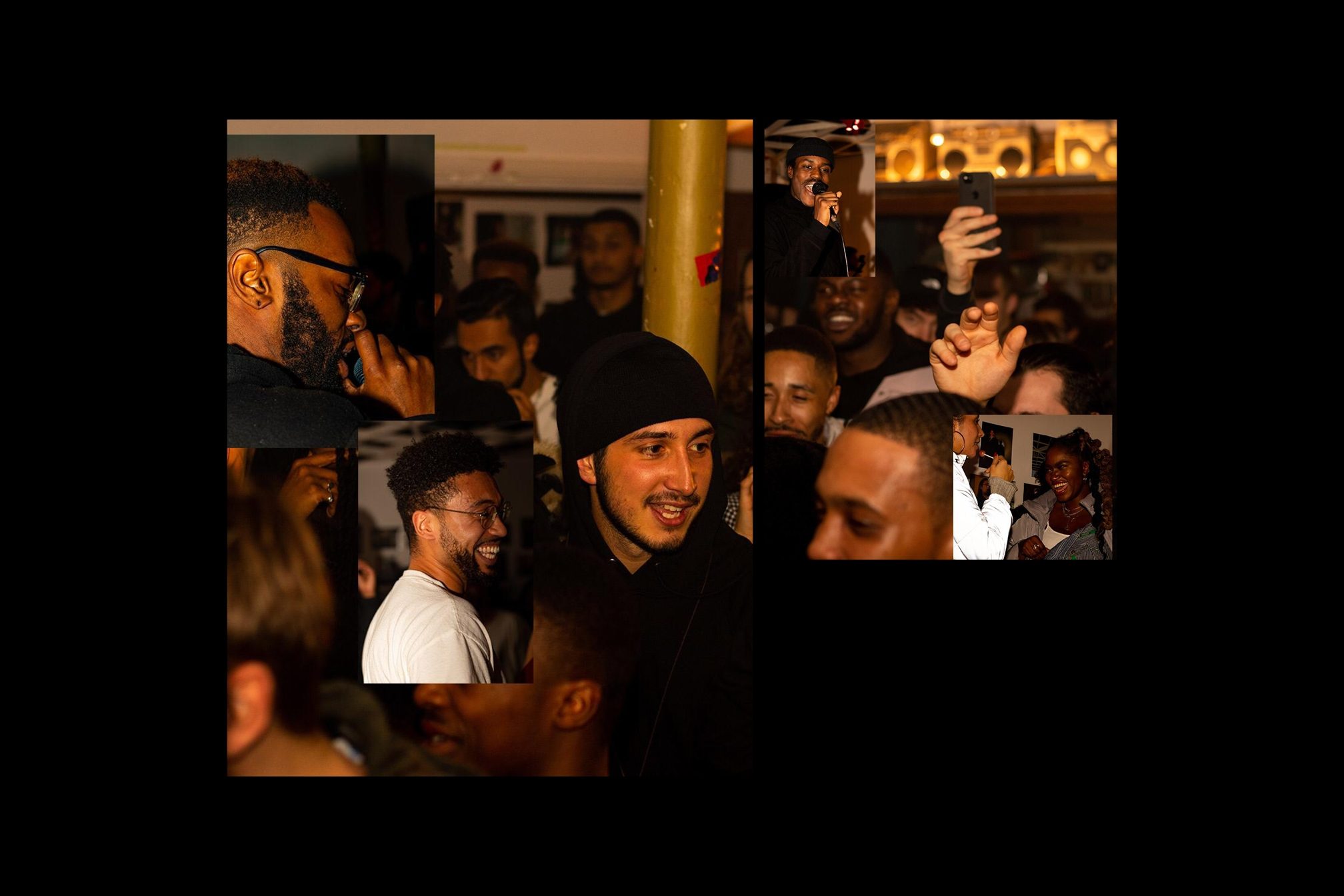
Eerf’s music is a medium of social activism, an extension of his professional practice. He was awarded ‘Youth Worker of the Year’ by the national charity UK Youth in 2018. He has worked for organisations like Leap Confronting Conflict, RISE Collective and the West Ham United Foundation to engage with young people across London, and the Paul Hamlyn Foundation to help secure funding for grassroots organisations. With his youth worker hat on, Jaden is an advocate for change in his home city: in the back rooms advising, plotting and strategising, as well as on the frontlines, talking directly to those in power on behalf of young people who are increasingly marginalised and forgotten in contemporary British life. With his musician hat on, and the Silhouettes community by his side, he looks ahead to a 2021 filled with further growth and impact, a spreading of his hopeful message.
“The only way communities are going to move forward, especially with the rise of gentrification, and the loss of spaces, is if we work together. And that’s something that’s been at the heart of what we do,” he concludes. “I’m not tryna say anyone is bad. When we’ve got rich communities coming into London and changing spaces like Hackney or Brixton or Peckham, things like that are gonna happen. But how do we celebrate difference, and celebrate the working class communities that are there, and provide an economy that benefits everyone? It’s very hard to say, even harder to do. But music is a great way for people to come together and unite.”
Ciaran Thapar is a freelance writer and author of Cut Short: Youth Violence, Loss and Hope in the City, follow him on Twitter
Read this next: Radical Black rap music needs to be protected from gentrification


